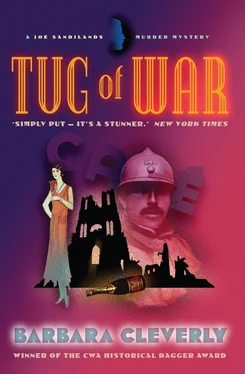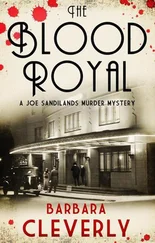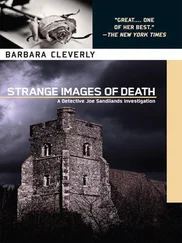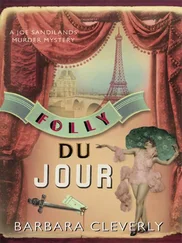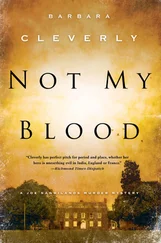Barbara Cleverly - Tug of War
Здесь есть возможность читать онлайн «Barbara Cleverly - Tug of War» весь текст электронной книги совершенно бесплатно (целиком полную версию без сокращений). В некоторых случаях можно слушать аудио, скачать через торрент в формате fb2 и присутствует краткое содержание. Год выпуска: 2011, Издательство: Constable & Robinson, Жанр: Исторический детектив, на английском языке. Описание произведения, (предисловие) а так же отзывы посетителей доступны на портале библиотеки ЛибКат.
- Название:Tug of War
- Автор:
- Издательство:Constable & Robinson
- Жанр:
- Год:2011
- ISBN:нет данных
- Рейтинг книги:3 / 5. Голосов: 1
-
Избранное:Добавить в избранное
- Отзывы:
-
Ваша оценка:
- 60
- 1
- 2
- 3
- 4
- 5
Tug of War: краткое содержание, описание и аннотация
Предлагаем к чтению аннотацию, описание, краткое содержание или предисловие (зависит от того, что написал сам автор книги «Tug of War»). Если вы не нашли необходимую информацию о книге — напишите в комментариях, мы постараемся отыскать её.
Tug of War — читать онлайн бесплатно полную книгу (весь текст) целиком
Ниже представлен текст книги, разбитый по страницам. Система сохранения места последней прочитанной страницы, позволяет с удобством читать онлайн бесплатно книгу «Tug of War», без необходимости каждый раз заново искать на чём Вы остановились. Поставьте закладку, и сможете в любой момент перейти на страницу, на которой закончили чтение.
Интервал:
Закладка:
‘There’s a banner! Reims Magniflque , that’s what we’re seeing.’ She squinted into the distance and read: ‘It’s la grande cavalcade and it’s celebrating the resurgence of the city after the exigencies of the Great War. Well, it’s quite a nuisance but you have to say — well done them!’ She looked around her at the cheering crowds, the marching band, the buildings under reconstruction or already rebuilt and still shining clean. ‘Eight years, Joe, that’s all the time they’ve had to build the city up again from the rubble the German army reduced it to. Look, there’s a picture in my book of the cathedral in flames. September 1914. The Germans were over there,’ she waved an arm vaguely to the north, ‘and they just took pot shots at it with fire bombs. Some scaffolding around the north tower caught alight and the whole building went up in smoke. Many of their own German wounded who’d been sheltering in the nave were burned to death along with the nuns who were nursing them.’
She looked up from her book, face puckering with distress. ‘They’d been here in the city only days before. They’d seen the beauty of the cathedral right there in front of them. How could they retire a few miles off and deliberately destroy it? I can’t understand.’
Joe had no answer. He’d felt her increasing sadness as they’d driven south through remembered battlefields and, in the end, had set aside most of the places he’d intended to see as unsuitable for a sensitive young person. He had not anticipated the force of her reaction to the memorials and had watched, disturbed, as the child had stood in floods of tears in front of the very first one they had visited, patiently going through all the names, insisting on pronouncing each one in her own private ritual, unable to move on until each man had been faithfully acknowledged.
‘Have you never been this way before, Dorcas?’ he’d asked. She reminded him that her father was a pacifist and a conscientious objector who’d spent the war years in Switzerland. They had always travelled through Dieppe and Paris and the war was never referred to. Orlando saw no reason to remind his children of this sorry episode.
In the end Joe had reduced their visits to two places of remembrance. Mons where it had all started and Buzancy, not very distant, where for him it had all finished in that bloody July four months before the end. He’d chosen Buzancy because it represented the combination, at times uneasy, of the allied forces. French, British and American had all fought here. But, above all, he’d chosen it because the small stone monument, a cairn in his eyes, had been hastily built up from material to hand after the battle; it was simple and affecting and bore no heartbreaking lists of the dead. Erected by the 17th French Division in honour of the 15th Scottish, it marked the place on the highest point of the plateau where had fallen the Scottish soldier who had advanced the farthest. A simple two-line inscription said it all, Joe thought:
Here the glorious Thistle of Scotland will flourish forever amid the Roses of France.
Now they’d arrived in Reims, he was determined to put nostalgic thoughts aside. Put out though he was by the hold-up, he was cheered by the sight of so much determined gaiety around them echoing his mood.
‘But look at the town now, Dorcas! It’s almost back together again. A triumph of civilization over barbarism you might say. That’s worth celebrating. Sit back and enjoy the show! And tomorrow I’ll take you to see something really special. Something symbolizing for me and for many others, I know, the spirit of this part of France.’
They paused to clap and cheer as another cart creaked past, overflowing with flowers, fruit and vegetables, the produce of the market gardeners of Cormontreuil.
‘I’ll show you an angel. Not just any old angel. You know. . holy-looking. . eyes raised piously to heaven. . suffering a frightful stomach-ache. This one is smiling. You’ll find him by the great door to the cathedral. He’s smiling at someone at his elbow, caught, you’d say, in the middle of a conversation, or even telling a joke. And I always look for the glass of champagne in his hand. No — it isn’t there, but you can imagine.
‘And the Germans didn’t have it all their own way! In their hurried retreat from the town — they’d been here for four days — some of the troops got left behind. They were carousing and failed to hear the bugle sound. Sixty of them were taken prisoner single-handedly by the innkeeper. There are tales of French derring-do on every street.’
‘How about a spot of English dash on this street?’ Dorcas suggested. ‘Look — there’s a gap between the floats — they’re having problems with that tractor and the policeman who stopped us seems to be rather distracted by the lightly clad young ladies from the Printemps display. Why don’t you. .?’
Joe had already put his foot down and was surging forward through the gap.
‘Left here and second right,’ shouted Dorcas and, for a moment, Joe was almost glad she was aboard.
Satisfyingly, they arrived at the Inspector’s office a neat five minutes before they were expected and Dorcas had sufficient time to run a comb through her tangled black hair and fasten it back with a red hair ribbon. In short white socks and a red candy-striped dress tied up at the back, English guidebook in hand, she was perfectly acceptable, Joe thought. He introduced her as his niece on her way south to join her father and the young Inspector gave her no more than one brief look, offered her a chair in a corner of his office and politely asked if the young lady spoke French. On impulse, Joe said, ‘Unfortunately not.’ The Inspector was clearly not surprised to hear this admission and remarked with only the slightest touch of condescension how unusual it was to hear French spoken so well by an Anglo-Saxon. Where had the Commander learned his French?
He appeared intrigued to hear of Joe’s involvement in the later stages of the war with Military Intelligence and his months of working as liaison officer with some distinguished French generals. His eye was drawn for a moment to the discreet ribbon of the Legion d’Honneur which Joe had fixed to his jacket as they mounted the stairs. Joe thought Bonnefoye looked too young to have participated in the war but, from his bearing, he judged he might have at some stage undertaken a military formation. He decided to treat him with the clear-cut good manners of a fellow soldier.
They were politely offered refreshment. Tea? Coffee? Joe deferred to Dorcas who, to his annoyance, went through a pantomime of wide-eyed ‘What was that, Uncle Joe?’ and then produced a triumphant: ‘ Café . I’d like café , please.’
A tray was sent for and the two men settled to business. Files were produced. Dorcas opened her book.
With a few pointed questions the Inspector satisfied himself that Joe had made himself familiar with the facts of the case and was taking it seriously. Joe, in turn, filled in some gaps in his information and noted down the time of the interview the Frenchman had arranged for that afternoon with the doctor in charge of the case. He obtained further details of the four claimants and the Inspector’s written permission to interview them at the addresses given if he wished. This was handed over with only the slightest of hesitations. A hesitation which was, however, picked up at once by Joe. With a slanting glance of complicity he took the sheet Bonnefoye was handing him, folded it negligently, sighed and tucked it away in his file. He made a phantom tick against an imaginary checklist on the front page of his file and directed his full attention back over the desk again. After a further few minutes of polite sparring, Joe nodded and closed his file, putting his pen away in his pocket.
Читать дальшеИнтервал:
Закладка:
Похожие книги на «Tug of War»
Представляем Вашему вниманию похожие книги на «Tug of War» списком для выбора. Мы отобрали схожую по названию и смыслу литературу в надежде предоставить читателям больше вариантов отыскать новые, интересные, ещё непрочитанные произведения.
Обсуждение, отзывы о книге «Tug of War» и просто собственные мнения читателей. Оставьте ваши комментарии, напишите, что Вы думаете о произведении, его смысле или главных героях. Укажите что конкретно понравилось, а что нет, и почему Вы так считаете.
